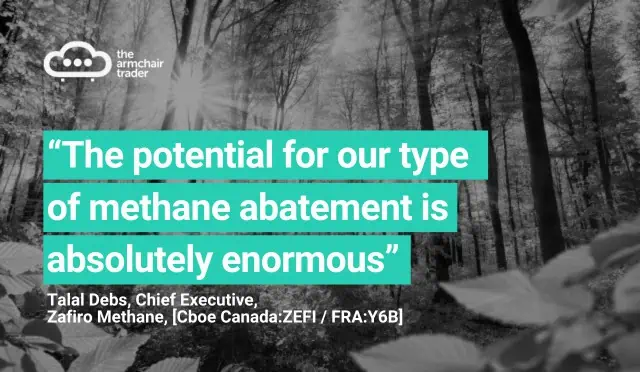The fine line between risk and reward in the smaller-end of the pharmaceutical sector has over the past few days been encapsulated by the performance of Hemogenyx [LON:HEMO] shares.
Looking at the trading patterns from Monday (5th June) you would see a sea of red (sells) whereas in the previous weeks you would notice a more balanced picture of blue (buys) with less reds, often for portfolio rebalancing purposes.
Hemogenyx was founded in 2013, spinning out of a research project by stem cell scientist, Dr. Vladislav Sandler from the State University of New York into blood stem cells (Post-natal Hemogenic Endothelial Cells) and their potential to seek and destroy cancerous blood cells in adults suffering from blood cancers, including acute myeloid leukaemia.
The company, headquartered in London, but operating from New York, listed on the London Stock Exchange in November 2015 and has been developing a range of treatments for blood and autoimmune disease, primarily acute myeloid leukaemia, which has a very low survival rate of around 15%, with its lead therapy, HEMO-CAR-T.
Hemogenyx stem cell research
Currently the methods to treat acute myeloid leukaemia include a course of intense chemotherapy and if not successful, a bone marrow transplant. Both options are brutal and given the role that blood takes in the autoimmune system, risky and not very successful. The toxicity and incidence of death resulting from bone marrow transplantation (never mind finding a suitable donor) are high, but Hemogenyx hopes that its stem cell research can increase the success of bone marrow transplants. The proposed treatment can also be used by patients with lymphoma, multiple sclerosis, aplastic anaemia and lupus.
- Voyager Life looks from pharmacies to pets to continue growing
- Is Eco Animal Health set for a share price correction?
- Intuitive Investment Group’s ‘follow the science’ strategy yields triple digit one-year returns
HEMO-CAR-T, is Hemogenyx’s flag-bearing product, which operates through the construction of Chimeric Antigen Receptor- ((CAR) special receptor created in the laboratory designed to bind to certain proteins on cancer cells)) programmed T cells (a type of white blood cell, part of the immune system developed from stem cells in the bone marrow) introduced to the patient’s body to search and destroy cancerous acute myeloid leukaemia cells.
The therapy seeks to isolate T cells from the patients own body, extract them and then modifies them in the laboratory, before propagating the modified cell and then reintroducing the cancer killers in large numbers back into the patient’s body. The biotech company had managed to prove the theory in the laboratory and by May this year had progressed the research to the point that it was able to approach the US Food & Drug Administration (FDA) to accept HEMO-CAR-T as an ’Investigational New Drug’ – a significant milestone in drug and therapy development – and was on the blocks ready to start clinical trials.
Yay Hemogenyx; Boo cancer! Sandler said at the time: “We are pleased to have reached this milestone with HEMO-CAR-T. We are committed to advancing therapies for blood diseases, and our work to address [acute myeloid leukaemia], which currently has poor survival rates, is an essential part of that commitment.”
Last year was a good year for the company, as it honed HEMO-CAR-T after encouraging noises from the FDA and opened a new custom-built R&D facility just off the Hudson River in Manhattan to manufacture T cells. At the start of this year the firm banked over GBP4m in new capital, deploying most of it towards HEMO-CAR-T.
However – as is par for the course for small pharmaceutical companies involved in pre-clinical and clinical trials – Hemogenyx reported an operational loss in 2022 of nearly GBP4m, up from GBP2.7m the year previously as it intensified work on HEMO-CAR-T
Cash burn intensifies
Again, symptomatic of early-stage pharma companies, Hemogenyx’s cash burn intensified as it moved towards its application to the FDA with the GBP18m company’s bank balance falling from GBP6.8m at the end of 2021 to GBP2.5m at the end of last year, but investors were still very bullish on the stock, with shares hitting 3.925p on 15th January.
However, after starting June at 2.3p, news emerged last week that the FDA had sent an email to Manhattanville saying it was concerned with aspects of HEMO-CAR-T, forcing Hemogenyx to put HEMO-CAR-T on clinical hold whilst it addressed the concerns.
Sandler said in a statement last week: “…We are confident that we will be able to address the FDA’s questions and concerns regarding the [Investigational New Drug trial]. [Acute myeloid leukaemia] has poor survival rates and we are eager to resolve this hold and continue down the treatment development pathway toward saving lives.”
Subsequent to that statement Hemogenyx’s share price fell to 1.54p and hasn’t really recovered since. The company’s shares closed trading on 5th June, at 1.525p but the company has still offered a year-to-date return of 13.75% and 1.9% over a year. Hemogenyx’s shares have ranged between 1.15p and 4.3p over a 52-week period but has given back much of the gains it produced at the beginning of the year.
It isn’t game, set and match for Hemogenyx. The company will respond to the FDA within a month, and should any concerns be dismissed, expect the company’s shares to bounce back. Hemogenyx has other products in its pipeline in immunotherapy and cell therapy, but it’s gone fairly all-in on HEMO-CAR-T and needs to get it through this period of scrutiny from the FDA.
Vadim Alexandre, head of healthcare for broker SP Angel said: “A clinical hold is an order issued by the FDA to the sponsor of an IND application to delay a proposed clinical investigation. The FDA letter should provide clarification regarding the information the regulator requires to clear the IND. Hemogenyx is confident that they will be able to address the FDA’s questions. Once the IND submission has been cleared to proceed by the FDA, the company intends to initiate a Phase I clinical trial of HEMO-CAR-T. The initiation of testing would mark the transition of Hemogenyx into a clinical stage company, a significant value inflection point for a biotechnology business.”
Should the therapy eventually navigate all the hurdles to market, it could be game-changing, especially to people suffering from acute myeloid leukaemia, and whether Hemogenyx progresses the treatment, or it is adopted by big pharma, the value of the company will significantly appreciate. However, up until that point, Hemogenyx is operating (like most small pharma companies) on hope, Investors will be watching intensely for updates from the company in the coming weeks.














